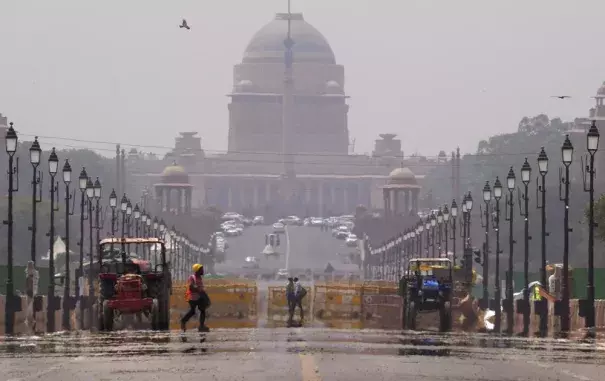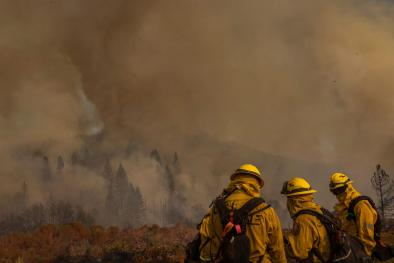World Weather Attribution: South Asia Heatwave 30x More Likely Because Of Climate Change:

Climate change made India and Pakistan's punishing March and April heatwave at least 30 times more likely, a study from World Weather Attribution finds. “This is a sign of things to come,” Arpita Mondal, a climate scientist at the Indian Institute of Technology in Mumbai, who was part of the study, told the AP. The heatwave shattered monthly and all-time temperature records across Pakistan and northwestern and central India, impacting nearly 70% of India and 30% of Pakistan — approximately 1 billion people in total, about one-eighth of the global population. The heatwave slashed crop yields in vital Indian agricultural regions, fueled hundreds of forest fires, and snowmelt in Pakistan caused a glacial lake to flood. It also illustrates the risk climate change poses to the region's economy and threatens to hurt India's credit score. The heat was especially brutal for those who lack access to cooling and/or work outside, like 42-year-old father of two Rahman Ali, who earns less than $3 per day sorting people's trash to salvage what can be sold. “What can we do?" he said to the AP. "If I don’t work...we won’t eat." The study is consistent with a UK Met Office study, released last week, which found a record-breaking heatwave like the heatwave in South Asia this year is 100 times more likely because of climate change.
(Attribution: AP, Washington Post $, Reuters, The Guardian, Axios; Cooling access: Thomson Reuters Foundation; Credit risk: Bloomberg $; Possible U.S. aid: Reuters; Climate Signals background: Extreme heat and heatwaves)
To receive climate stories like this in your inbox daily click here to sign up for the Hot News Newsletter from Climate Nexus:
Related Content



